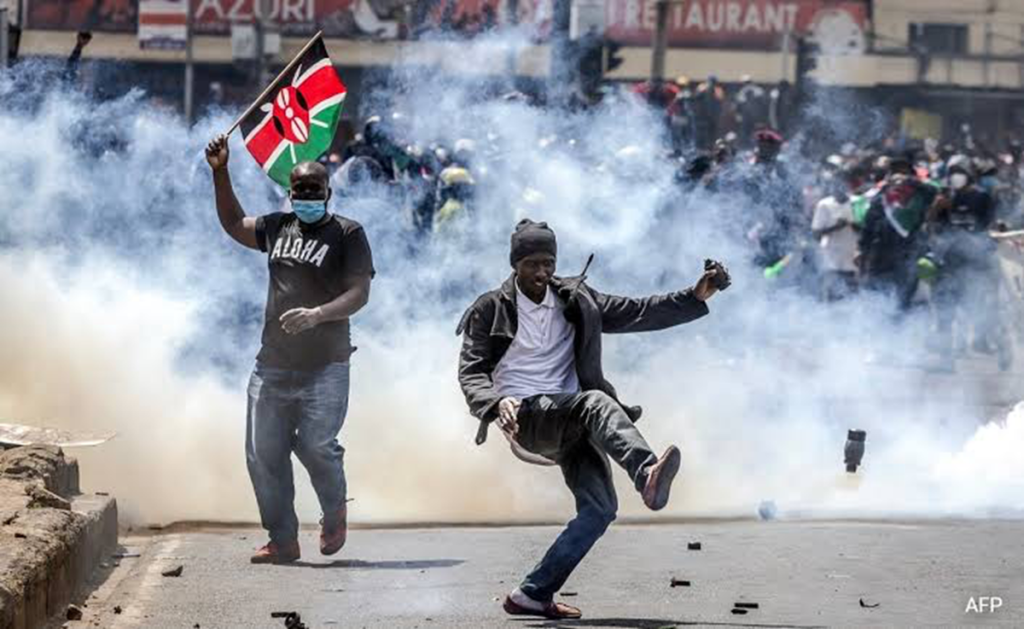Reports say that police patrolled Nairobi, the capital of Kenya, on Thursday, and roadblocks were set up. Shops were closed in anticipation of planned new protests against the Kenyan government.
The East African country has experienced several weeks of demonstrations (sometimes violent) led by young Kenyans who identify as Generation Z protesting against President William Ruto’s government.
On Wednesday, the acting police chief of the nation warned that “criminals” were planning to infiltrate the protests. He advised people to avoid trespassing in “protected areas” such as the main international airport and State House, the president’s official residence.
In a statement on a social media platform, Gilbert Masengeli, the acting inspector general of police, mentioned that “adequate security personnel” had been deployed. He also urged the public to be cautious in crowded areas that might turn violent.
Although the size of the rallies, which began in June, has decreased in recent weeks, posters shared online called for new protests called “Nane Nane” (Eight Eight in Swahili), referring to the date, August 8.

In his statement on Wednesday, Masengeli warned of “criminals planning to infiltrate tomorrow’s Nane Nane demonstrations and commit further crimes”.
Organisers of the protests have previously accused “goons” of hijacking their plans for peaceful actions and igniting violence.
The protests, which began as peaceful demonstrations against proposed tax hikes, have recorded at least 60 deaths. It has since evolved into broader actions against Ruto and what many perceive as excessive government spending and corruption.
The police have been accused of using excessive force, including the use of live ammunition against protesters, of which some are missing.
On Wednesday, government spokesman Isaac Mwaura urged young Kenyans to “avoid unchecked protests, which could lead to further economic hardships and hinder their chances of gaining employment”.
Mwaura also mentioned that the spread of misinformation had contributed to the protests and advised people to “disregard calls for violence”.
Addressing the most significant crisis of his presidency, Ruto implemented several measures to address public dissatisfaction, including abandoning the tax hikes, restructuring his entire cabinet, and making substantial budget cuts.
Ruto is torn between the demands of international lenders to stabilise government finances to pay off the country’s significant $78 billion debt and the struggles of ordinary Kenyans facing a high cost of living.


